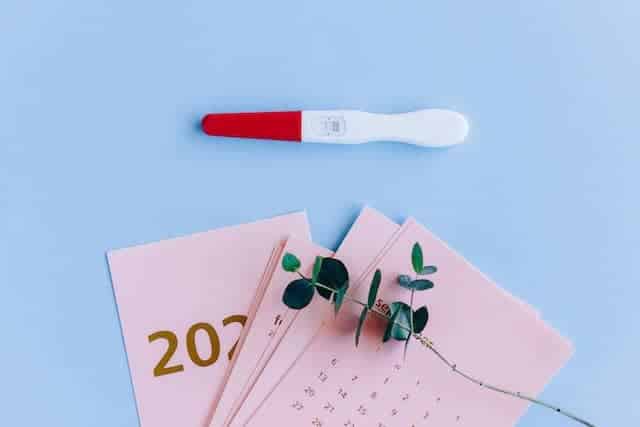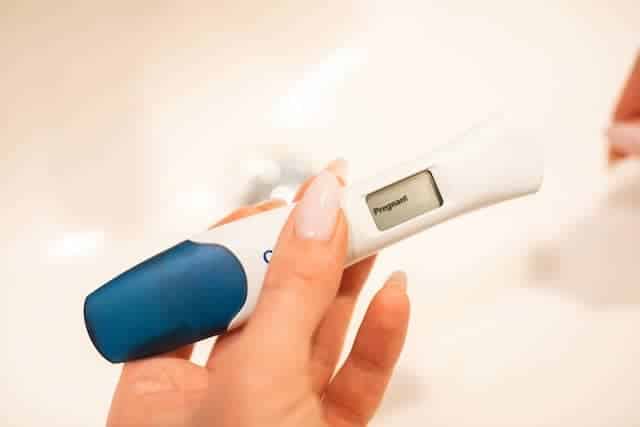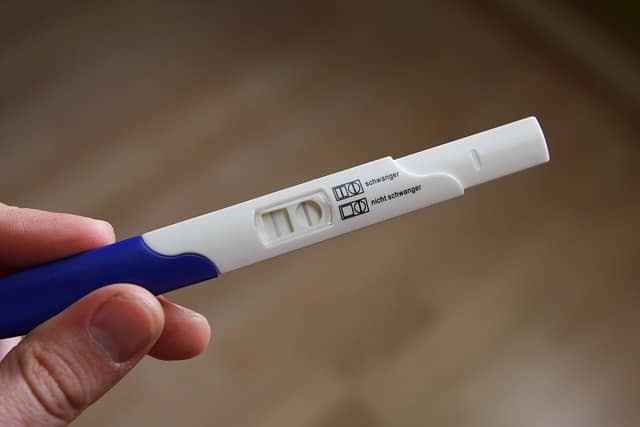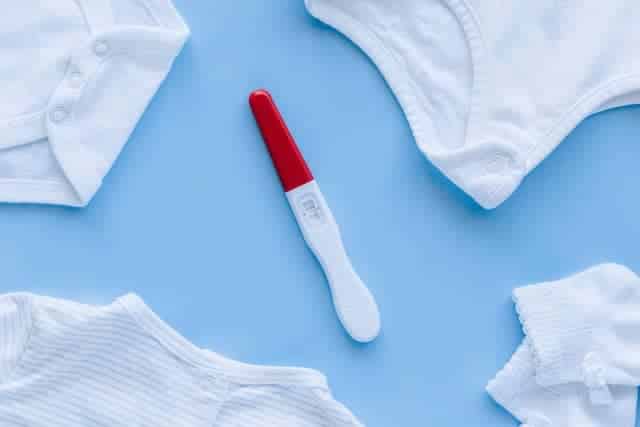Pregnancy in View
The journey to motherhood begins with pregnancy and starts at the first moment you suspect to be pregnant.
Oh, what a joy to begin that journey…
Pregnancy is a beautiful thing and a joy to behold.
Ahead of time, when you suspect you may be pregnant and need to take a test, there are what not to do before taking a pregnancy test to truly ascertain that there is an actual pregnancy (avoiding a false positive result). Some of them include:
- Don’t take a test too early after intercourse (less than 8 days);
- Don’t take fluids (water, teas, and beverages) before a test;
- Avoid using urine samples that may contain blood;
- Avoid the use of some types of drugs.
This article highlights in detail those things you should avoid before taking a pregnancy test and other relevant details about such a test.
Signs That You May be Pregnant?

As with anything else in our body, such as illness, puberty, growth, and in this context, pregnancy, they all begin with a sign or signs.
When you first notice you have missed your period at the due time and had had intercourse, you may have a feeling that you might be pregnant.
But then, not all signs may indeed be pregnancy, and when you carry out a pregnancy test, the result may show a false positive which means you are actually not pregnant.
To avoid getting such a wrong result, there are things you should not do before taking a test.
On the other hand, after taking a test and confirming you’re truly pregnant, there are some things you will have to stop taking to avoid possible miscarriage, such as some teas. Some teas can cause miscarriage during pregnancy.
Another common tea ingredient, Chamomile, present in Sleepytime Tea is not safe while pregnant.
What Next to Do? – Taking a Pregnancy Test

Before deciding to have a pregnancy test, you need to understand some concepts about pregnancy and how pregnancy test results work.
Hormones responsible for Pregnancy Result
One of the mistakes anyone can make before taking a pregnancy test is to rush at it just after sex or a few days after sex which is wrong.
Human Chorionic Gonadotropin (hCG) (1) is a hormone produced during pregnancy. It is produced by the syncytiotrophoblastic cells (found in the trophoblast tissue) in the placenta during pregnancy. This tissue (trophoblast) is typically found in early embryos, hence its importance in detecting pregnancy.
However, this hormone builds up with time as soon as conception occurs, and the level increases as the day go by.
Therefore, if you take a pregnancy test too early (less than 8 days), you may get a negative result.
On the other hand, the level of hCG rises exponentially in the first trimester and doubles every 24hrs during the first 8 weeks. It peaks in the 10th week and starts diminishing to a stable level in the 16th week, where it remains relatively constant till delivery.
Types of Pregnancy Test
There are two types of pregnancy tests:
- Urine testing – a more convenient, affordable, and comfortable means of a pregnancy test with a quick result turnaround time of 5-10 minutes. This test does not detect hyperglycosylated hCG, which is the bulk of the hCG present in early pregnancy.
- Serum testing is much more sensitive and specific than the urine testing. It involves using a blood sample and is carried out in a laboratory.
If you want to detect pregnancy very early and decide about such pregnancy, you should carry out a serum pregnancy test instead of a urine test.
It is recommended to take a pregnancy test 8 days after intercourse to get a positive report (presumably that fertilization took place the same day).
A negative report 7 days after your missed period indicates you are not pregnant.
What Not to do Before Taking a Pregnancy Test – 7 Things

While this is the meat of the bone of this article, it is essential to note the weight it carries for an accurate result, not to get a false pregnancy result, false positive, or false negative results.
Either the urine or serum test can give a false report, and there are many reasons for such.
When you decide to take either type of pregnancy test, you should avoid the following things:
Urine test – false positive:
- Avoid using urine samples that may contain blood – while blood in urine during pregnancy may be a sign of Urinary Tract Infection (UTI); it may result in a false positive
- Avoid the use of some types of drugs like aspirin, carbamazepine, and methadone. They can lead to high urinary pH (2) levels and can give a false positive result.
Urine test – false negative:
- Don’t take a test too early after intercourse (less than 8 days).
- Don’t drink large amounts of water – water or any other fluid you consume dilutes the level of hCG in your urine. This may result in a false negative
Serum test – false positive:
- Avoid taking animal products that can interact with assay antibodies. (3,4)
- Avoid the use of exogenous hCG (5) prepared for weight loss, to help in reproduction, or for doping (sportswomen)
Serum test – false negative:
- Don’t take a test too early after intercourse (less than 8 days)
Other Relevant Tips on Pregnancy Tests – do’s, don’ts, how-to, and FAQS

As much as the focus of this article has been covered, here are other relevant details on taking a pregnancy test and frequently asked questions.
Every detail is covered, and you will find satisfying answers to your queries.
How soon after sex can you take a pregnancy test?
It is recommended to take a pregnancy test at least 8 days after unprotected sex. If implantation were to occur immediately after sex, it would take up to 8 days to test positive after a pregnancy test.
Does alcohol affect pregnancy test?
Yes, alcohol affects pregnancy tests and can give a false negative result. Alcohol is a liquid that can dilute the hCG level in your urine. It would be best to drink no liquid before taking a pregnancy test.
Can you take a pregnancy test after drinking?
Yes, you can take a serum pregnancy test after drinking, but it is not recommended to take a urine test after drinking any liquid. Serum testing uses a blood sample, unlike urine test, which uses a urine sample and can give a false negative result when diluted.
Should I take another pregnancy test after a positive?
If you doubt your first positive result, you can take another test. However, if the test was positive 7 days after your missed period, then you’re most likely pregnant.
Negative pregnancy test at night and positive in the morning
A negative pregnancy test at night and positive in the morning is possible under the following conditions:
– the urine sample used at night was diluted from excess fluid intake, hence a negative result (false negative).
– by morning, a urine sample is usually concentrated hence a possibly positive result.
Can I take a pregnancy test at night?
Yes, you can take a pregnancy test at night. You need to ensure that you are dehydrated for long hours of the day ahead of night hours, so your urine is concentrated with hCG for accuracy. Otherwise, take your pregnancy test as soon as you wake up.
Is pregnancy test accurate at night?
A pregnancy test can be accurate at night if you have tried to abstain from taking any liquid for most of the day. Diluted urine from consuming excess liquid (water, teas, and beverages) will lead to an inaccurate result – a false negative. Otherwise, take your pregnancy test as soon as you wake up in the morning.
Can you pee too much on a pregnancy test?
There may be nothing such as peeing too much on a pregnancy test. However, the recommended way to take a urine pregnancy test is to pee in a cup and dip the test kit into the cup. This way, the test strip absolves enough urine and gives a more accurate result. You should read and follow the instructions on your test strip.
Can you take a pregnancy test in the afternoon?
Yes, you can take a pregnancy test in the afternoon. The serum pregnancy test is recommended to take over a urine test in the afternoon. This is because your urine may be diluted at the time, unlike the serum test, which is a blood test taken in a laboratory.
Resources
(1) hCG: Human Chorionic Gonadotropin
(2) High Urinary pH: Vaginal and Cervical pH in Normal Pregnancy
(3,4) Assay Antibodies: (3) Human anti-animal antibody interferences in immunological assays,
(5) Use of exogenous hCG – doping: Detection of human chorionic gonadotrophin misuse in sports



